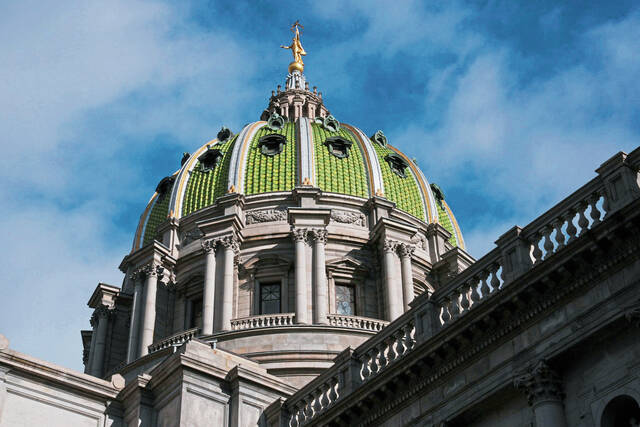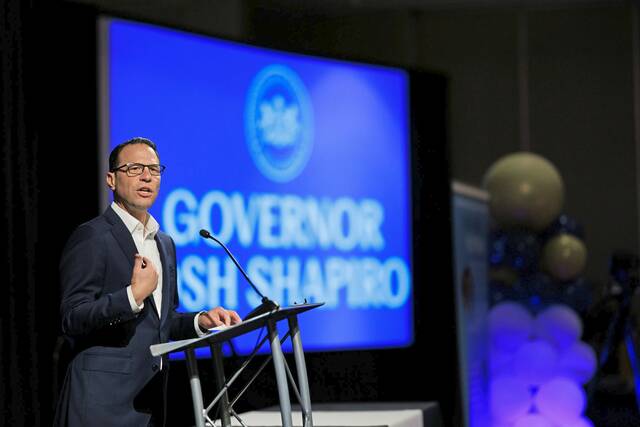The failure of Pennsylvania lawmakers to pass a budget for the fiscal year that began nearly three months ago is inspiring several pieces of legislation aimed at preventing such impasses in the future.
In the House, a bill from state Rep. Jill Cooper, R-Murrysville, would suspend paychecks for the governor, lieutenant governor and members of the House and Senate during impasses. The legislation is co-sponsored by five Republicans and three Democrats.
State lawmakers haven’t passed a budget on time since Cooper began serving in Harrisburg in 2023. Lawmakers have missed their mandated budget deadline in 14 of the past 22 years, including each of the past four years.
Pennsylvania’s current fiscal year began July 1. On Tuesday, the state’s budget impasse reaches 92 days.
“What I have found here is there is no urgency or accountability for us. That’s very frustrating coming from a business background, where there is urgency and there is accountability,” said Cooper, a former sales executive with Alcoa.
“I’m not sure what else to do, but I feel it’s a principle to not be paid while you’re not actually completing the major portion of your job. Maybe it will help people to focus more,” Cooper said of her legislation, which was referred to the House Appropriations Committee and is awaiting a vote there.
“I feel like it was a way for us to let our constituents know that we understand that there might be impacts (of the impasse) and, if there is, we’ll stand with you and not get paid until that impact changes,” she added.
In addition to the legislation, Cooper is one of several lawmakers in Harrisburg who is voluntarily opting not to accept her paycheck during the impasse. Apart from the impasse, Cooper said she also does not accept per-diem payments provided to lawmakers and donates her annual pay raises to local charities.
State Rep. Jeremy Shaffer, R-Pine, a co-sponsor of Cooper’s legislation, also plans to introduce legislation that would suspend automatic pay raises for the same officials during impasses.
“Our state government is dysfunctional. In seven of the last 10 years, we have not had a state budget on time. And while school districts and social services organizations suffer, state legislators actually are rewarded,” said Shaffer, who is in his first term in the House.
“There is no negative effect to the people who are directly involved in the process,” he added. “By forcing the actual members (of the House and Senate) and the governors to be able to take the same medicine that they’re giving to school districts and to other social service entities that require state funding, I think it would encourage the process to reach a resolution much quicker.”
Shaffer continued: “It is just morally wrong that literally people are getting laid off and not getting paid at all, while state legislators and the governor are getting paid and getting pay raises in the process.”
Also in the House, state Rep. Brian Rasel, R-Penn Township, plans to introduce legislation that would, in the event of an impasse, enable the state treasury to continue making appropriations amounting to 85% of the prior fiscal year’s spending.
“As seen in recent years, budget discussions are arduous, complex and often result in negotiations going past the end of a fiscal year,” Rasel wrote in a memo.
“This leaves Pennsylvania taxpayers wondering which, if any, of the prior fiscal year’s programs and services will continue. We can do better by our constituents,” Rasel added. “The good people of our commonwealth don’t get a break in paying taxes to Harrisburg, so why should Harrisburg get a break in funding education, making sure our communities are safe or that our senior programs are operating?”
In the Senate, state Sen. Lisa Boscola, D-Northampton County, plans to introduce legislation for Pennsylvania to move to a biennial (two-year) budget instead of an annual one.
“Too often, the budget process itself gets bogged down in gridlock, with missed deadlines becoming routine rather than the exception,” Boscola wrote in a memo.
“This chronic dysfunction hurts working families, school districts and local governments that rely on predictable state funding to serve our communities,” Boscola added. “A two-year budget cycle would bring much-needed stability and predictability to the process.”








